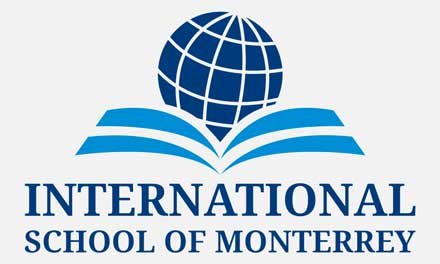
JUNIOR HIGH
JUNIOR HIGH
ACADEMIC CURRICULUM
SPANISH
Students will be capable of analyzing the different reference materials; writing summaries to support their study, texts that integrate the information of summaries and notes, poems, letters, biographies, play scripts and autobiographies; to participate in debates and in the solution of the problems of the school or society; to defend their viewpoints with regards to topics previously written up in an essay; to adopt a critical position with regards to the news; and to reflect on the syntactical and semantic structure of texts.
MATH
Students should be able to resolve problems involving the use of exponent laws and scientific notation; additive problems with monomial and polynomial expressions; problems involving the use of equations; problems involving the use of Pythagoras’s Theorem; congruency and similarity problems; problems involving calculating the volume of figures; and problems of probability and percentages.
ENGLISH LANGUAGE ARTS
In Language Arts students not only develop all four skills, but also learn to use English effectively, demonstrating command of the conventions of standard English grammar and usage. Reading skills are presented and practiced through a variety of themes and genres. Lectures, academic discussions, and conversations allow students explore stimulating topics. Writing is developed through the construction of single paragraphs, articles, narrations, and essays of multiple lengths and genres.
ENGLISH AS A FOREIGN LANGUAGE
In English as a Foreign Language, our students work on vocabulary, text features, literary terms, story structures, and word analysis. Our program builds valuable tests (TOEFL and FCE) taking skills. Our program features critical thinking skills development together with language skills, as well as meaningful speaking activities and role-plays.
STATE MANTATED SUBJECT
The students will be capable of recognizing the differences between federalist and centralist ideologies; the importance of The Liberal Triumph and the restoration of the Republic; the multiple causes of the economic resurgence of Nuevo Leon; and the causes and consequences of political and social movements in Nuevo Leon.
BIOLOGY
Students will learn about the characteristics of living beings, and their distribution, evolution and adaptation; heterotrophs and autotrophs, aerobic and anaerobic organisms, photosynthesis; sexual and asexual reproduction; mitosis and meiosis.
GEOGRAPHY
Students will be capable of identifying the components of geographic space; understand the relationships between geosystems that influence biodiversity; identify vulnerable population zones; understand globalization; identify social and economic inequality in Mexico and the world; and reflect on the economic and political interests of the country.
PHYSICS
Students will interpret speed as the ratio between distance and time, data tables and time-position charts. They will understand the undulatory behavior of sound; the properties of matter; temperature arising from the scientific model for particles; and the emission of electromagnetic radiation, with the changes of electron orbits in the atom.
WORLD HISTORY
The student will recognize the contributions of the civilizations of Antiquity and the Middle Ages; the influence of humanistic ideas in political changes; the consequences of World War II; the consequences of the end of the Cold War; the causes of the main conflicts in the world; and the importance of of citizen participation and organizations.
CHEMISTRY
Students will understand the physical properties, qualitative properties; intensive properties; methods for separating mixtures; chemical representation of the elements, molecules, atoms, ions and isotopes; the periodic table; characteristics of elements; chemical bonds and valences; contributions by Lewis and Pauling; and acids and bases which are important for our daily life.
HISTORY OF MEXICO
Students will reinforce their knowledge of the History of Mexico, revisiting topics seen in detail about the consolidation of New Spain, the profile of New Spain towards 1700; the years of peace, economic growth and dictatorship; the profile of the country at the beginning of the 20th Century; migration demographic growth; and nationalism.
CITIZENSHIP AND ETHICAL EDUCATION
The student will learn not make informed decisions; conditions and rights to full social and personal development; characteristics of democratic citizenship; organization of the Mexican State; and on democratic participation.
PHYSICAL EDUCATION
The focus of this subject has an integrating character and involves multiple functions: cognitive, expressive, communicative, and well-being. On the one hand, motion is one of the fundamental cognitive instruments of the individual, both for self-awareness themselves as well as to explore and structure her/his immediate context. Through motion, one’s own motor capacity is improved in different situations for different purposes and activities, allowing one to even show skills and overcome difficulties.
While the individual is using her/his body and corporal motion to relate with others, not just in the game and sports, but also in general in all manner of physical activities, the subject promotes the consideration of both as instruments for communication, relating and expression. Likewise, physical exercise contributes to the preservation and improvement of one’s own health and physical fitness.
MUSIC
The purpose of the Arts subject in junior high is that students will go deeper into the knowledge of an artistic language and that they practice it on a daily basis, so as to integrate knowledge, skills and attitudes in relation to artistic thinking.
Thus, and as per the curriculum, we intend to:
-Provide the young people the possibility and the means to make music and enjoy doing it (as individuals and as part of a group).
-Develop their auditive sensitivity and perception and to enrich their musical appreciation.
-To promote their expressiveness and creativity through the exercise of musical improvisation, creation and performance practices.
-Form critical students who are respectful of musical diversity.
-Contribute to building a sense of belonging to a national culture.
